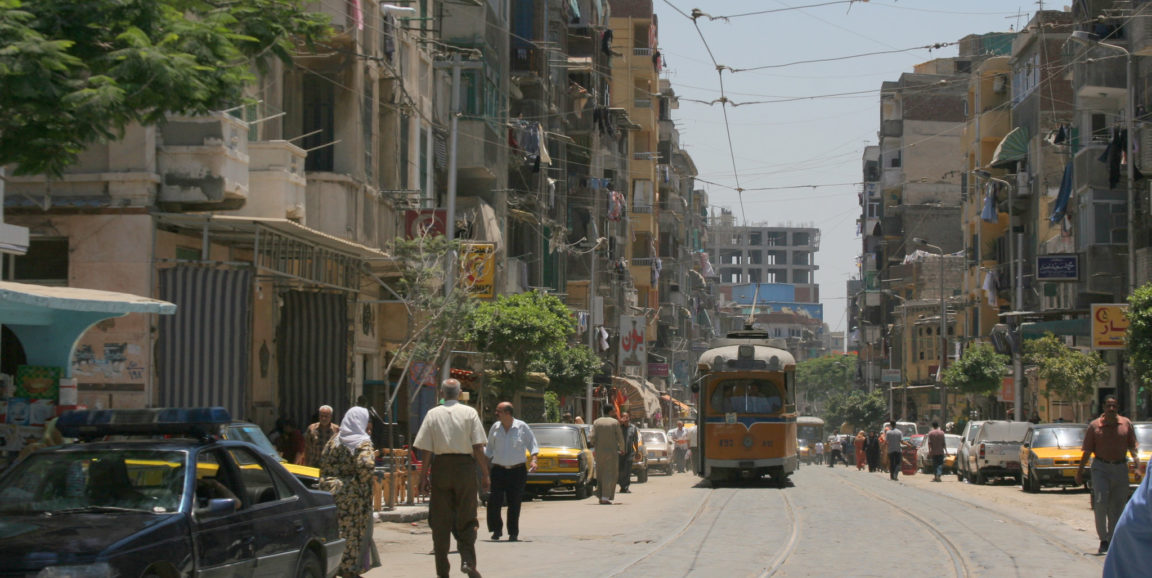When Yasser El-Sayed, MD, immigrated to the United States as a teenager, he began writing fiction to help cope with his family's move from North Africa. Now obstetrician-in-chief at Lucile Packard Children's Hospital Stanford, El-Sayed has never stopped writing. His first collection of short stories, The Alexandria You Are Losing, which deals with themes of cultural dislocation, was published recently by Red Dirt Press, and is the December Read of the Month at the Southern Literary Review.
I've interviewed El-Sayed many times about his work as a physician and scientist, but until recently had never asked about his writing.
How did you become a fiction writer?
I started writing when I came to the States in 1979. I was 16 years old, in high school. It was a difficult transition: We'd come from North Africa to Boston in winter.
I was very excited to come to the States. I'd spent many years in Libya and grown up with a lot of Americans who were there because of the oil business, and I didn't expect the culture shock because I was comfortable with American culture. But living in North Africa surrounded by American friends, you're still in North Africa. Going to the East Coast threw me for a loop.
Writing became something that helped me process the cultural and life change. A lot of the stories were set in Libya or in Egypt, where I was born. I felt a certain nostalgia for a sense of familiarity and home that I did not expect. I was so excited to come to the United states, but then that longing for what had been familiar was pretty intense.
How do you get ideas for your stories?
Some are vaguely based on things that have happened in my life. Broadly, the sense of a search for place, identity and home has run through a lot of the stories. But this is also a theme I feel is dominant in American culture: The fluidity, mobility, the fragmentation of families. So I could see my own experiences mirrored in the culture around me, and I tried to illuminate that shared experience.
I really did take a bus from Boston to Oklahoma, as the protagonist does in "Pilgrim," the first story in the new collection. And I really did meet this guy at a rest stop in Joplin who kept asking me to get a Coke for him, and later did discover that he was a cripple, his legs shattered and his life falling apart, and that he was going to Oral Roberts University to be saved and healed. That trip to Oklahoma occurred maybe a year after I moved to the States, and it's taken me this long to process it into a story.
There are also stories in the collection that are completely made up. "Sojourn" evolved from visiting a remote area outside Alexandria, Egypt. There was nothing there but a hotel -- in the forefront, the Mediterranean sea; in the background, the desert and gravestones from World War II. I had an image of an establishment in the middle of nowhere, and the accidental collision of lives and personal histories there. I began with that image and just started filling it in with more ideas.
The last story in the collection, "Casket," is about my dad, about his passing. That is probably the most real story in the collection.
I really enjoyed reading your descriptions of the Bay Area. You describe SFO as "an airport of metal and glass, gleaming like a drawn knife in sunlight." Where did that come from?
I think it probably emanates from the visual sensation I had when I went from the desert, after spending seven years in Tripoli, with only a few high buildings and a lot of intense heat and light, to Boston. The sun suddenly seemed so anemic, the area heavily industrialized. It was a palpable change.
The Bay Area is, of course, flooded with sunlight, and I haave always felt comforted by really bright, warm sunlight. But SFO also has that sense of hard metal, steel and glass, the juggernaut of a metropolis. That's the image I tried to capture.
How do you incorporate writing into your life?
It's a compulsion that's uncomfortable! Sometimes when you capture something on the page there's a huge sense of reward, but the process is very difficult to do, especially when you're living a very immersive life as a physician.
My technique is bland, but it keeps the substrate coming in: I write seven lines in the morning -- it could be gibberish -- and during the day I think of it like an e-mail and write another seven lines, and then another seven lines late at night. And I painfully count them. That gives me a page a day. If I do that every day, by the end of a month, with lots of editing, I have a short story. I don't really start a story at the beginning or end; I write a moment.
My high school English teacher still reads and edits all my stories. She's in her 80s now and she's very brutal with her edits.
What's next?
I have a novel out with my agent, which we're revising and working to publish. It's called Ghibli; in Arabic, it means "sandstorm" or "hot desert wind." It's set mostly in Tripoli, about an American expat family and their interface with a Libyan family, and deals in novel form with some of the same themes as the short stories in my new collection.
My next project after the novel is a collection of short stories steeped in the medical experience from the physician perspective, and the complex lives physicians struggle with during a career in medicine.
Photo by kmf164




